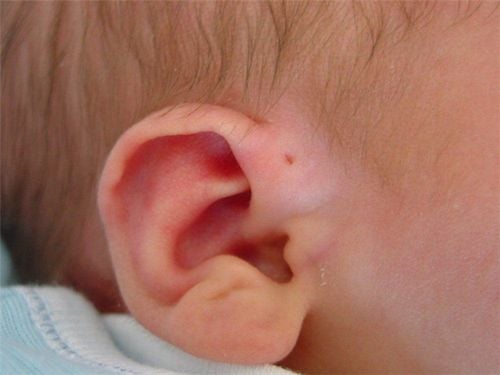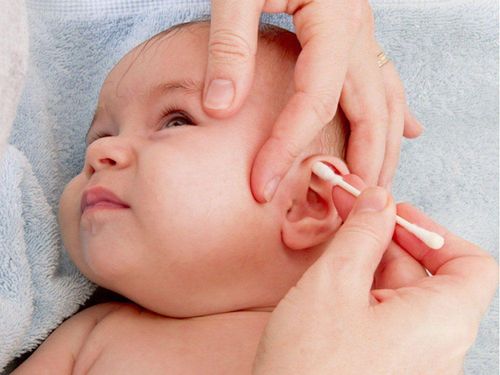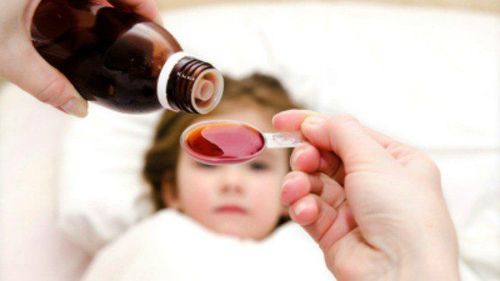This is an automatically translated article.
The article was professionally consulted with Specialist Doctor I Le Van Quang - Department of General Surgery - Vinmec Nha Trang International General HospitalAtrial septal defect is a birth defect in children where there is a small hole in the skin of the face in front of the ear, which connects to the inside of the cartilaginous base of the auricle. Atrial fissures may be inflamed, swollen, and have a foul odor.
1. What is atrial fistula?
Atrial fibrillation is a birth defect in children, when a small hole appears in the anterior region of the ear, through the base of the ear cartilage, the fistula goes deep inside and attaches to the cartilage.
Atrial fibrillation usually occurs in the 6th week of pregnancy, more common in girls than boys. Fetally, a rotator cuff fistula is caused by an incomplete fusion of the first and second gill arches during the creation of the external ear. This malformation can be observed soon after birth, usually appearing in one ear, sometimes in both sides. Atrial fibrillation usually occurs independently, simply, but sometimes can be combined with other malformations, leading to the formation of syndromes and pathologies with systemic manifestations such as parotid-ear-renal slit syndrome, half-face atrophy... The most common condition is atrial fistula which is swollen, inflamed, and has a bad smell.
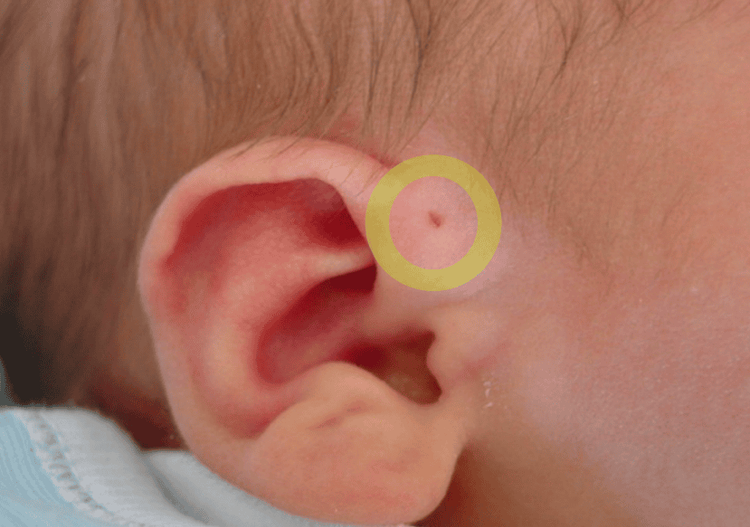
Hình ảnh rò luân nhĩ
2. Symptoms of atrial fistula
Baby atrial fistula with a toothpick on the skin when it is infected, swollen or blocked often causes an itchy, uncomfortable feeling, secretions of bean paste (caused by children touching, scratching, squeezing), white discharge , foul-smelling or bulging, forming cysts (cysts when superinfected will become larger and larger, forming atrial fistula abscess).
The disease is often not paid enough attention by parents, leading to ignoring common symptoms such as an inflamed atrial fistula, a swollen atrial fistula or a foul-smelling fistula. If not treated properly, atrial fistula not only causes aesthetic loss but also leaves many dangerous complications later.
3. How to treat atrial fibrillation?
Treatment of atrial fibrillation as well as complications such as an inflamed, swollen atrial fistula should be performed by an otolaryngologist as the course of treatment can vary depending on a relative set of factors. complex. In addition, if the fistula is long and twisted, it needs to be removed surgically, requiring an experienced ENT specialist to perform. Approaches to the treatment of atrial fistula include:
If there is no infection or inflammation of the atrial fistula, there is no need to handle anything; Prescribe oral antibiotics for children if the fistula shows signs of infection such as swelling, heat, redness; Perform aspiration and aspiration from the site of severe infection (abscess) if the patient does not respond well to antibiotics. In addition, the doctor may take a sample and perform a culture or test for bacteria present in the pus to determine the right antibiotic; Incision and drainage if rotator cuff abscess does not respond to needle aspiration; Surgical resection of the entire fistula for fistulas prone to recurrent infection. This procedure is done under general anesthesia and can take about an hour. Surgery is usually done only after the infection and inflammation of the atrial fistula is gone.
4. Measures to prevent infection of the atrial fistula
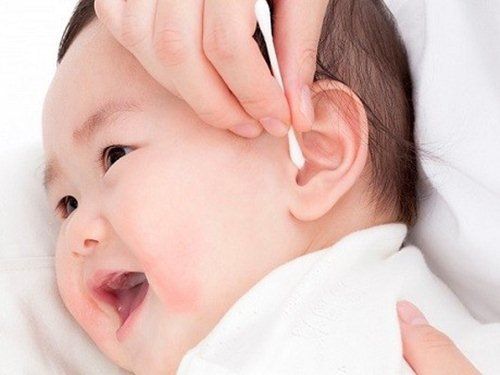
Công tác phòng ngừa viêm nhiễm chủ yếu là giữ vệ sinh sạch sẽ hàng ngày
Atrial fistula in children is a birth defect, so the main thing to prevent infection is to keep it clean every day, absolutely do not squeeze at the location of the child's fistula.
In many cases, children can live their whole lives with atrial fistula without any complications affecting the child's health. On the contrary, some cases of atrioventricular fistula are inflamed, leaky, swollen, painful, causing abscesses around... which are at risk of affecting children's hearing.
As recommended, when parents see that children often scratch or fistula have abnormal symptoms such as oily secretions, painful swelling, large bulges, parents need to take their children to a specialist medical facility. otolaryngology so that children can be examined and have a timely treatment plan for the infection of the tympanic fistula. If necessary, the doctor may appoint an early surgery to preserve aesthetics and preserve the child's hearing health in the future.
As a key area of Vinmec Health system, Pediatrics Department always brings satisfaction to customers and is highly appreciated by industry experts with:
Gathering a team of top doctors and nurses in Pediatrics : consists of leading experts with high professional qualifications (professors, associate professors, doctorates, masters), experienced, worked at major hospitals such as Bach Mai, 108.. Doctors All doctors are well-trained, professional, conscientious, knowledgeable about young psychology. In addition to domestic pediatric specialists, the Department of Pediatrics also has the participation of foreign experts (Japan, Singapore, Australia, USA) who are always pioneers in applying the latest and most effective treatment regimens. . Comprehensive services: In the field of Pediatrics, Vinmec provides a series of continuous medical examination and treatment services from Newborn to Pediatric and Vaccine,... according to international standards to help parents take care of their baby's health from birth to childhood. from birth to adulthood Specialized techniques: Vinmec has successfully deployed many specialized techniques to make the treatment of difficult diseases in Pediatrics more effective: neurosurgery - skull surgery, stem cell transplantation. blood in cancer treatment. Professional care: In addition to understanding children's psychology, Vinmec also pays special attention to the children's play space, helping them to have fun and get used to the hospital's environment, cooperate in treatment, improve the efficiency of medical treatment.
Please dial HOTLINE for more information or register for an appointment HERE. Download MyVinmec app to make appointments faster and to manage your bookings easily.




